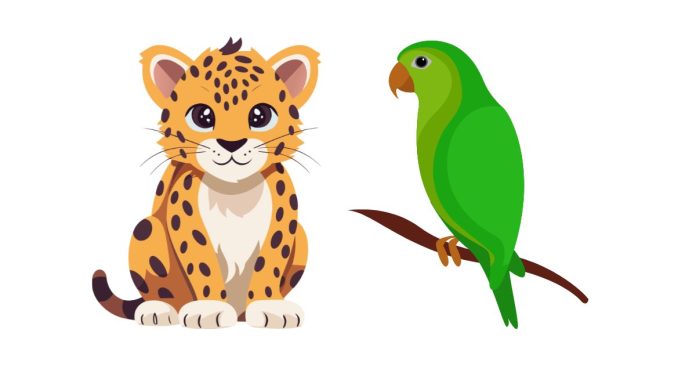If you’ve ever thought about owning an exotic pet, the ocelot may have crossed your mind. Known for their beautiful, leopard-like spots and wild appearance, ocelots are often considered fascinating creatures. But a common question that arises is: Can someone with no exotic pet experience get an ocelot? While the allure of having such a unique and striking pet is understandable, owning an ocelot comes with numerous challenges and responsibilities. In this blog post, we’ll explore whether it’s feasible for someone with no exotic pet experience to own an ocelot and the considerations to keep in mind before taking on such a responsibility.
What is an Ocelot?
An ocelot is a wild cat native to the Americas, often found in the rainforests of Central and South America. They are medium-sized cats with distinct, spotted fur that gives them a similar appearance to leopards or jaguars. Ocelots are carnivorous, nocturnal, and territorial animals, which means their care requirements are quite different from that of domestic cats. These animals are also known for their agility and intelligence, traits that make them difficult to care for in a home setting.
Can Someone Without Exotic Pet Experience Care for an Ocelot?
While it may sound tempting, owning an ocelot as a pet is not recommended for someone without prior experience with exotic animals. Let’s take a closer look at why this is the case:
1. Complex Care Needs
Ocelots are not domesticated cats, and their needs are far more complicated. Unlike house cats, ocelots require a specific environment that mimics their natural habitat. This means providing them with plenty of space to roam, climb, and hide, as well as maintaining an environment with the right temperature, humidity, and lighting.
In addition, their diet is much more demanding. Ocelots are obligate carnivores, requiring a diet that consists mainly of raw meat, which can be difficult and expensive to maintain.
2. Wild Nature
Ocelots, being wild animals, retain many of their natural instincts. They are territorial, solitary, and potentially aggressive, especially when they feel threatened or confined. Their predatory instincts are very strong, and they might not be suitable for households with other pets or children. These instincts can also lead to destructive behavior if the ocelot feels bored or stressed.
Unlike domestic cats, ocelots do not enjoy being handled or cuddled, and they may become agitated or even aggressive when interacted with in ways they don’t appreciate.
3. Legal and Ethical Concerns
In many places, it is illegal to own an ocelot or other wild animals as pets. There are strict laws regarding the ownership of exotic pets due to concerns about public safety, animal welfare, and conservation. Keeping an ocelot as a pet may require special permits, and in some cases, it is simply prohibited. Furthermore, taking an ocelot out of the wild can contribute to the decline of native populations and negatively impact biodiversity.
4. Cost of Care
Owning an ocelot is expensive. Beyond the initial purchase price, which can range from several thousand dollars, the ongoing costs include specialized food, veterinary care, and appropriate enclosures. Finding a vet that specializes in exotic or wild animals can be challenging, and emergency medical care for an exotic pet can be costly.
What Are the Alternatives?
If you are interested in exotic animals but don’t have experience, there are safer and more responsible alternatives:
- Consider Domesticated Exotic Breeds: Some domesticated cat breeds, like the Bengal or Savannah cat, are known for their wild appearance but have been bred to be more suitable as pets. While these cats can still have high energy levels and require a lot of care, they are generally more manageable than true wild animals like ocelots.
- Support Conservation Efforts: If you love ocelots and other wild cats, consider supporting conservation organizations that work to protect these animals in their natural habitats. Many wildlife sanctuaries and conservation programs offer opportunities to donate, volunteer, or even “adopt” an ocelot through symbolic adoptions.
While the idea of owning an ocelot may seem appealing due to their striking beauty and exotic appeal, it’s not a realistic or responsible option for someone without exotic pet experience. Ocelots require a specialized environment, diet, and care, and they retain many of their wild instincts, which can make them challenging and potentially dangerous to keep as pets.
If you’re passionate about exotic animals, it’s better to focus on supporting conservation efforts or consider domesticated breeds that are better suited to a home environment. Remember, exotic pets are not just unique additions to your home—they require a significant amount of care and attention, and keeping a wild animal as a pet may not be in the best interest of the animal or the owner.
Have you ever thought about owning an exotic pet, or perhaps you already have one? Let us know your experiences and thoughts in the comments below!


